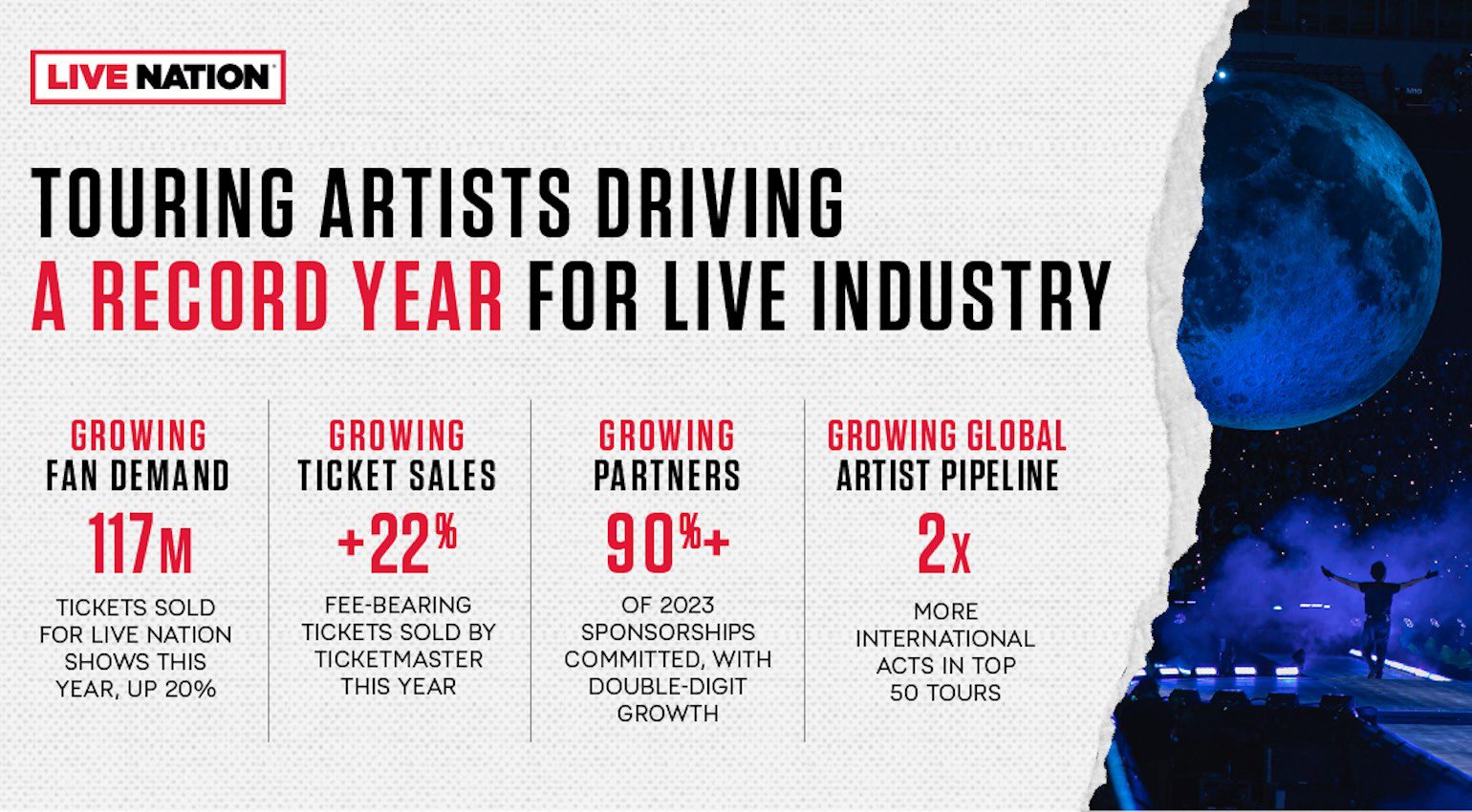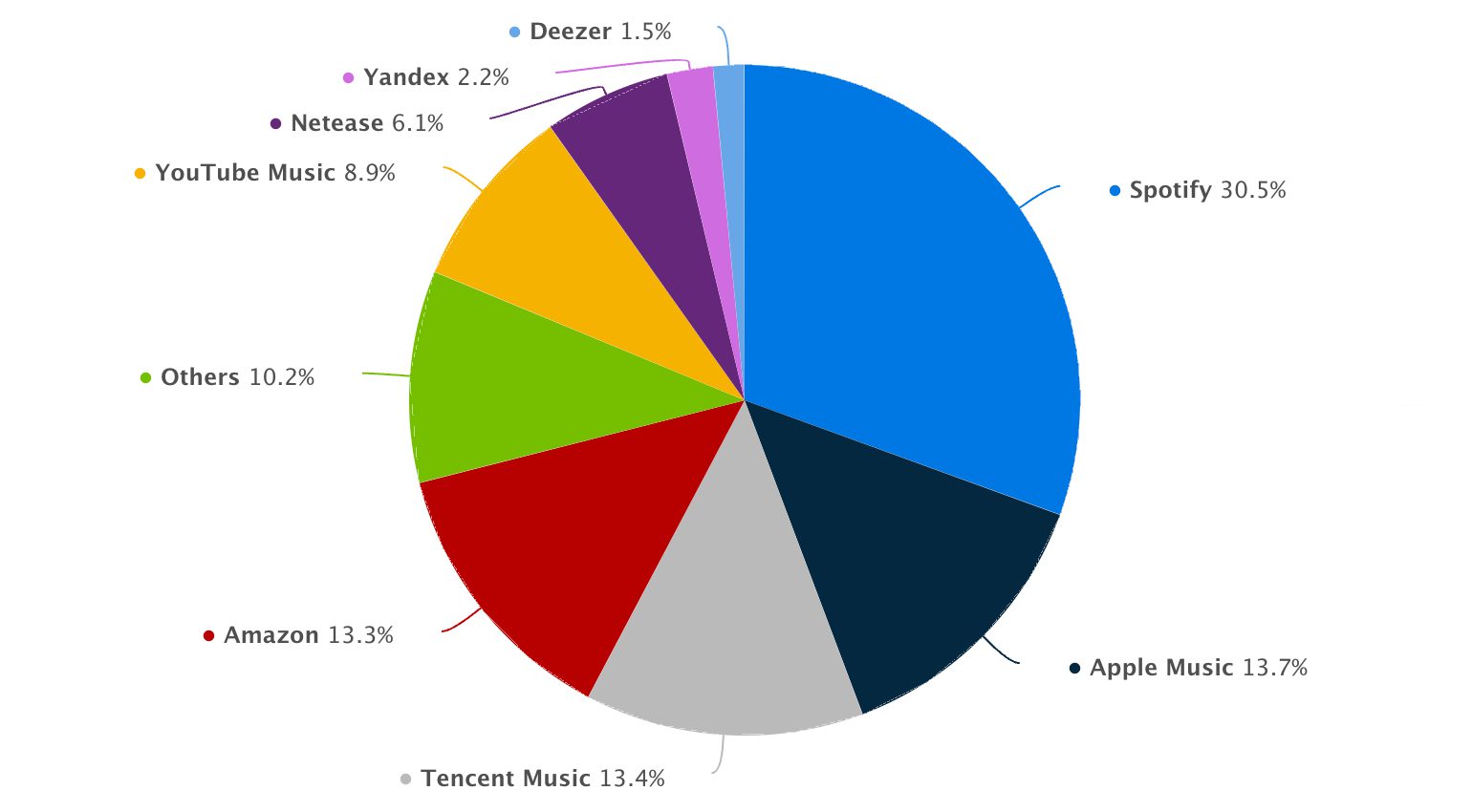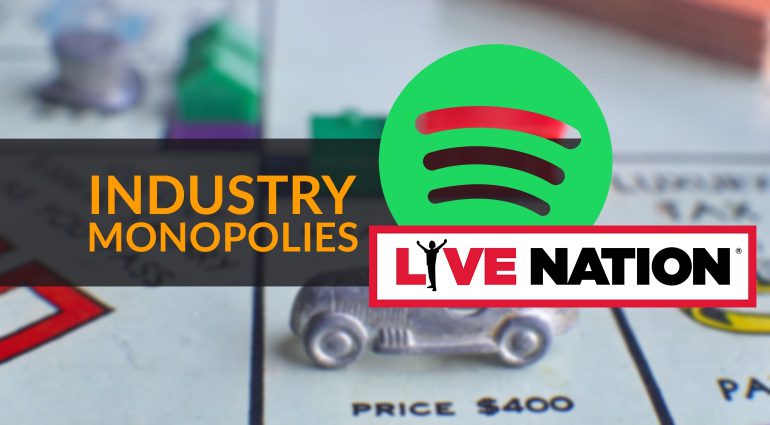Music Industry Monopolies: Are They Preventing Growth?
Music Industry Monopolies are a very real thing affecting artists at every level, from independents to major label acts.
As in any industry, there are infringements of certain ethical aspects of business practices that begin to seep in when monopolies exist. In music, companies like Live Nation Entertainment, Spotify, and Eventim have had a chokehold on their respective sectors for years now, but to what end, and what can we do about it as artists and music fans?
Music Industry Monopolies
The record industry has long since collapsed, which shifted the dynamic of the entertainment business completely. Now, with most artists seeing negligible revenue from streaming, basically a promotional format, live performance remains the Holy Grail. However, the game is rigged in many stages.
Live Nation Entertainment
In the live music sector, Live Nation pulled off a major coup back in 2010 with the Ticketmaster merger. Today the company controls 3 key areas of the live entertainment business, giving it the power to exert leverage wherever it sees fit, which is a dangerous prospect.
When it comes to real estate, Live Nation owns or controls over 100 key venues across the US. While this factor alone makes it impossible to be successful as an artist without having some form of relationship with LNE, it’s only the tip of the iceberg.
Next is the promotional component of the machine, which is a crucial service that artists rely on and pay dearly for. There is, of course, no incentive for equality here, however, as LNE will prioritize the artists that bring in the most revenue.

Figures from the LNE financial overview, second quarter 2023 · Source: Live Nation Entertainment
This final fork of the trifecta is Ticketmaster, which secures the LNE monopoly with utter surety. Here LNE dominates both the direct and resale markets, forcing its competitors to use Ticketmaster as a vendor in many cases, as they simply don’t have the same resources for dealing with the major acts.
In addition, this totalitarian ticketing approach allows LNE to make major service delivery fails without any consequences, as we saw with the Taylor Swift ticket debacle.
Since then, Live Nation has made recent “reparations” in the favour of artists, with moves like scrapping the fees on the sale of merchandise at venues and granting headliners an additional $1500 to cover expenses.
Spotify
The artist’s role in the world of online streaming is even more of a mere formality than ever, and the ever-increasing volume of content available makes it harder for an artist to stand out in the endless sea of what’s available.
Spotify never claimed to have artists’ interests in mind though. From the very beginning, it was major labels who sought to leverage market share on the platform and visibility for their top acts.
The value lies in the free and premium subscriber base which surpassed half a billion this year. However, Spotify’s 210 million premium subscribers equate to only 40% of its total users, with 317 million ad-supported subscribers.
Advertising revenue is, of course, another priority for the platform, and another obstacle for artists in the digital streaming space is that algorithms are beginning to favour long-form content such as podcasts, vlogs, and even streaming channels over music.

Music Streaming Subscriber Share, 2nd Quarter, 2022 · Source: Statista
Instead of views or subscriber counts, audience retention is the name of the game. So your next hit single isn’t only competing with other songs for chart success and radio play, you are competing against all the content on the platforms you use.
Since the pandemic era, content creation has quickly taken over as the flagship of the entertainment business in terms of revenue with Spotify investing billions in securing exclusive rights to long-form content creators like Joe Rogan.
Long-form content also carries more weight with advertisers, as the audience is far more receptive when consuming either video or audio podcasts.
But where does this leave artists starting out or simply trying to sustain their businesses in 2023? There are certainly some unavoidable corporate systems in both the live and streaming spaces, so learning to navigate these is key.
What are your thoughts on the role of companies like Live Nation and Spotify in the landscape of today’s industry? Please let us know in the comments below!
More about Music Industry Monopolies:
Videos:
You are currently viewing a placeholder content from YouTube. To access the actual content, click the button below. Please note that doing so will share data with third-party providers.
You are currently viewing a placeholder content from YouTube. To access the actual content, click the button below. Please note that doing so will share data with third-party providers.
You are currently viewing a placeholder content from YouTube. To access the actual content, click the button below. Please note that doing so will share data with third-party providers.
You are currently viewing a placeholder content from YouTube. To access the actual content, click the button below. Please note that doing so will share data with third-party providers.
You are currently viewing a placeholder content from YouTube. To access the actual content, click the button below. Please note that doing so will share data with third-party providers.
*Note: This article contains advertising links and widgets that help us fund our site. Don’t worry: the price for you always stays the same! If you purchase something through these links, we receive a small commission. Thank you for your support!
2 responses to “Music Industry Monopolies: Are They Preventing Growth?”
 4,4 / 5,0 |
4,4 / 5,0 | 







Who’s the corporate shill who gave this post one star?
Just curious, but when has any monopoly benefitted the worker?